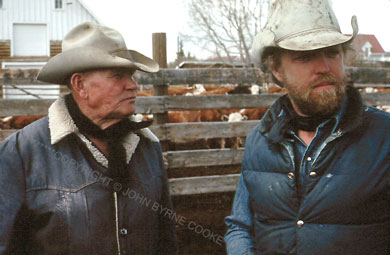Idéer är verb, inte substantiv
 Grateful Dead, cowboy och nätpionjär. John Perry Barlow har inte gått livets raka väg.
Grateful Dead, cowboy och nätpionjär. John Perry Barlow har inte gått livets raka väg.
Jag läste hans fantastiska artikel i Wired i mars 1994 och den förändrade min värld. The Economy of Ideas ser nutiden genom helt nya ögon och förutspår en framtid som fortfarande förvånar, nästan tjugo år senare.
“The economy of the future will be based on relationship rather than possession. It will be continuous rather than sequential.”
Barlow frågar – vad händer med idéer när behållaren som de förmedlats med försvinner?
“Thus, the rights of invention and authorship adhered to activities in the physical world. One didn’t get paid for ideas, but for the ability to deliver them into reality. For all practical purposes, the value was in the conveyance and not in the thought conveyed. In other words, the bottle was protected, not the wine. Now, as information enters cyberspace, the native home of Mind, these bottles are vanishing.”
Bitar och atomer är väsensskilda men samhället försöker fortfarande hantera dem som två sidor av samma mynt.
“if we continue to assume that value is based on scarcity, as it is with regard to physical objects, we will create laws that are precisely contrary to the nature of information, which may, in many cases, increase in value with distribution.”
Information ökar i värde varje gång det kopieras, det är till exempel bättre om många läser mitt blogginlägg. Fysiska saker minskar i värde varje gång det kopieras, en originalmålning är värd mer än en kopia av samma tavla.
Information är en upplevelse, inte något man innehar.
“The central economic distinction between information and physical property is that information can be transferred without leaving the possession of the original owner. If I sell you my horse, I can’t ride him after that. If I sell you what I know, we both know it.”
Det är en lång artikel men du kommer inte ångra att du tog dig tid att läsa den. Sannolikt kommer du läsa den flera gånger. Varsågod:

